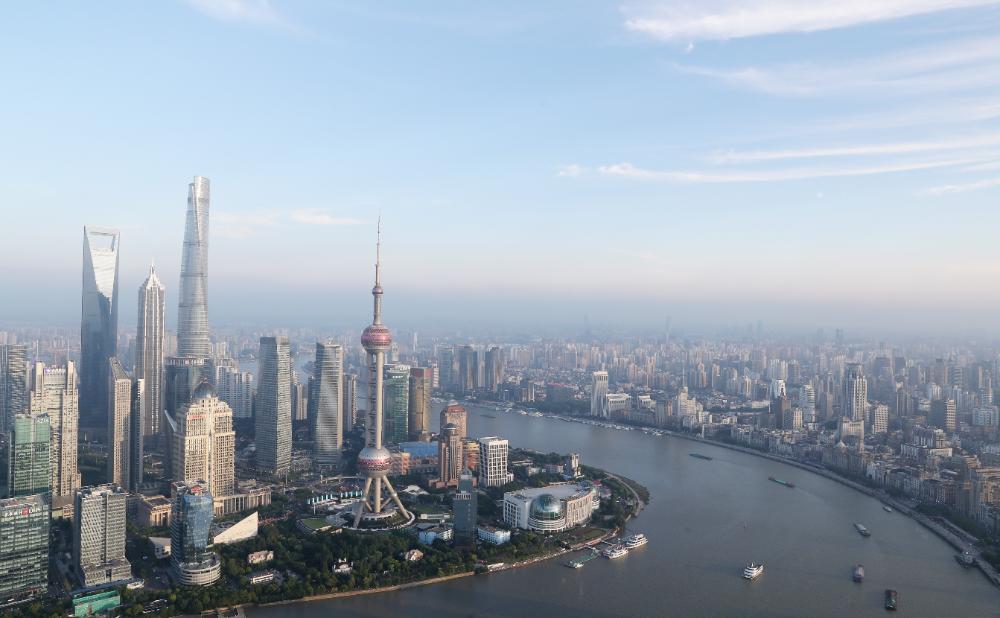
Photo taken on June 21, 2018 shows a view of the Lujiazui area in Shanghai, east China. (Xinhua/Fang Zhe)
BEIJING, May 11 (Xinhua) -- China has recently drafted the Futures Law, stipulating that China's futures regulator and its overseas counterparts could carry out joint supervision and administration over cross-border futures trading, reported Shanghai Securities News Monday.
"For futures companies that have subsidiaries overseas, there will be more regulatory guarantees when conducting overseas business, which can effectively promote the development of cross-border business and the globalization process," said Lu Dayin, general manager of Orient Futuresbased in east China's Shanghai Municipality.
The draft Futures Law specifies that the futures trading rules shall be in line with the international standards, which is conducive to improving the international status of China's futures market, and it also makes comprehensive regulations on overseas futures trading, providing an institutional basis for domestic futures operators to "go global", said Liu Biao, general manager with Hicend Futures headquartered in Shanghai.
One of the highlights of the draft futures law is that it makes it clear that if an overseas futures trading venue provides domestic entities or individuals with direct access to its trading system for services, it shall register with the futures regulatory body or apply for an exemption from registration, and accept the body's supervision and administration.
This means that overseas futures companies are allowed to open accounts in China for overseas products upon approval, and domestic investors can do foreign trading reasonably and legally through overseas futures companies, said Hu Yuyue, head of the Securities and Futures Institute, Beijing Technology and Business University, adding that it is consistent with the development of the current futures market.
The draft law also clarifies that derivatives contracts listed on overseas futures trading venues shall comply with the the provisions of the futures regulatory body under the State Council if they are settled at the contract price listed on domestic futures trading venues.
This indicates that the current supervision is constantly digging into the blind spots of risk management and control, said Li Qiang, secretary of the board of Xinhu Futures, a domestic brokerage, and head of the Xinhu Futures institute.
Li pointed out that currently there is both linkage and mutual influence between domestic and foreign assets, and the draft Futures Law conveys that regulators will expand the coverage of supervision and strengthen cooperation with each other, which lays a foundation for the future development of the futures industry.
(Edited by Wang Yuhang, Gu Shanshan with Xinhua Silk Road, gushanshan.1987@163.com)




 A single purchase
A single purchase









